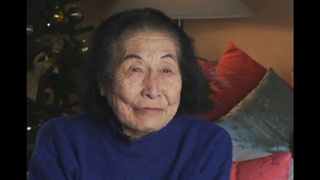Interviews
Strict school policy of separating boys and girls in Japan
I*: Tell me about the, the separation or segregation between boys and girls in the school system.
Oh yes, that was very strict. If you talk -- when I, even after the school or Saturday, Sunday, of course, Saturday, half a day was the school. And after finish school or you go out for the shopping with parents or friend, you have to wear school uniform, so you could see this, high school students are doing. So if you talk with the boys, I don't know who reports, they go to school right away. I don't know, that time, do you think they had a telephone?
I: No.
I don't think so, so somebody must be, go to school, and, because I was talking to neighbor's boy, because he asked me how I'm doing, and he asked me how the mother is. And talking like that, and somebody report. And one time, my father passed away when I was sixteen, and my brother came back from Canada, and my brother said after that funeral and everything, Let's go and see the movie. So I wore my uniform, and I went to, two brother with movie, somebody report principal for me, and, Where did you go last night? I went to see movie. With who? My brother. So principal was so surprised; they thought I was only daughter in family, so they, they were kind of, Oh, your brother? All right, you go to the class. Go back to class. [Laughs]
* "I" indicates an interviewer (Peter Wakayama).
Date: February 14, 2005
Location: Toronto, Canada
Interviewer: Peter Wakayama
Contributed by: Sedai, the Japanese Canadian Legacy Project, Japanese Canadian Cultural Center












